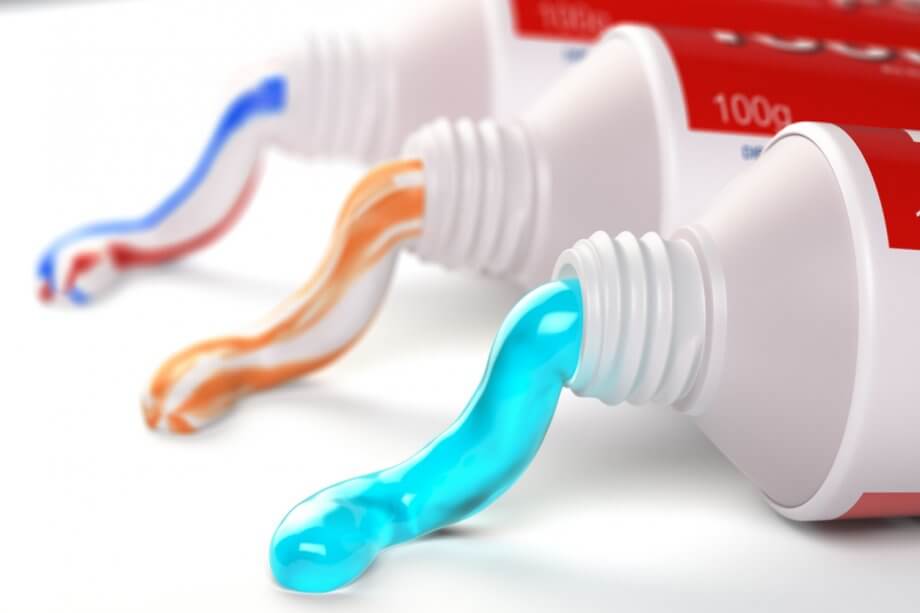Do you suffer from sensitive teeth? Having sensitive teeth means that when you eat or drink something cold or hot it can cause pain. Some people experience sensitivity to sugar as well. One of the simplest remedies is to use a toothpaste that is designed to relieve the symptoms of sensitive teeth.
But does sensitive teeth toothpaste really work? If so, how does it work? Is it safe to use? Are there alternatives? These questions and more will be answered below.
How Does Sensitive Teeth Toothpaste Work?
The toothpaste contains an ingredient that blocks the pain sensors that respond to heat, cold, and sugar. There are a few different ingredients that are used in sensitive teeth toothpastes, such as:
- Potassium nitrate
- Stannous fluoride
- Strontium chloride
These ingredients, when the toothpaste is used regularly over time, will help the nerves in your teeth build up a resistance to aggravators like cold, heat, and sugar. The toothpaste needs to be used daily for a few weeks to be effective.
What Causes Sensitive Teeth?
Why do teeth become sensitive in the first place? Sensitivity is usually the result of a weakening of the tooth enamel or exposed tooth root. Weakened or thin tooth enamel can come from teeth grinding, decay, or abrasion that has worn down the enamel. The root of a tooth or multiple teeth can be exposed as a result of gum disease or receding gums.
Are the Chemicals in Sensitive Teeth Toothpaste Safe?
The active ingredients in sensitive teeth toothpaste are relatively safe to use. According to the Environment Working Group (EWG) the following chemicals are rated on a scale of 0-10 with 0 being no health hazard to 10 being high health hazard.
- Potassium nitrate: 1. This active ingredient is the safest of those commonly found in sensitive teeth toothpaste.
- Stannous fluoride: 2. This ingredient received a 2 because it is an effective desensitizer, but it won’t actively strengthen teeth in the form of toothpaste.
- Strontium chloride: 3. This ingredient received the worst safety rating. Although a 3 out of 10 is still relatively low, it has been banned by the Japanese government for use in cosmetics, which is a bit of a red flag.
While all of these have a relatively low risk factor, you’ll have to decide if the possible risk is worth the benefit. If you have any concerns, you may want to seek other remedies.
Treating Sensitive Teeth at the Root Cause
Rather than simply treating the symptoms, it may be in your best interest to treat the actual cause of your sensitive teeth.
- Fluoride Treatments. In-office fluoride treatment is a professional grade fluoride solution applied directly to teeth that can help to strengthen enamel. This can help to relieve sensitivity and prevent worsening of sensitivity from weakening enamel.
- Gum Grafting. If tooth root has been exposed due to receding gums, a gum grafting procedure can be done. Gum grafting takes a piece of soft tissue from the roof of your mouth and applies it to the exposed area of the tooth.
- Root Canal. The pain associated with tooth sensitivity starts in the root of the tooth where the nerve exists. A root canal procedure removes the tooth pulp from the inside of the tooth root and fills the tooth with composite solution, thus eliminating any pain.
- Bonding. Bonding material, like what is used in cavities and root canals, can be applied to exposed tooth root to protect against sensitivity.
- Mouth Guard. If you grind your teeth at night, a mouthguard can protect your teeth from the damage that results from that. Grinding teeth can wear down enamel, so a mouthguard can help to prevent further sensitivity.
Suffering from Sensitive Teeth? Dental Associates can Help
If you have trouble drinking or eating hot, cold, or sweet foods and beverages due to sensitive teeth, there are solutions. Dental Associates can help in a variety of ways from prescribing a sensitive teeth toothpaste or treating the sensitivity at the root of the problem.
Call (860) 677-8666 today to schedule a consultation with Dental Associates in Farmington, Connecticut.

